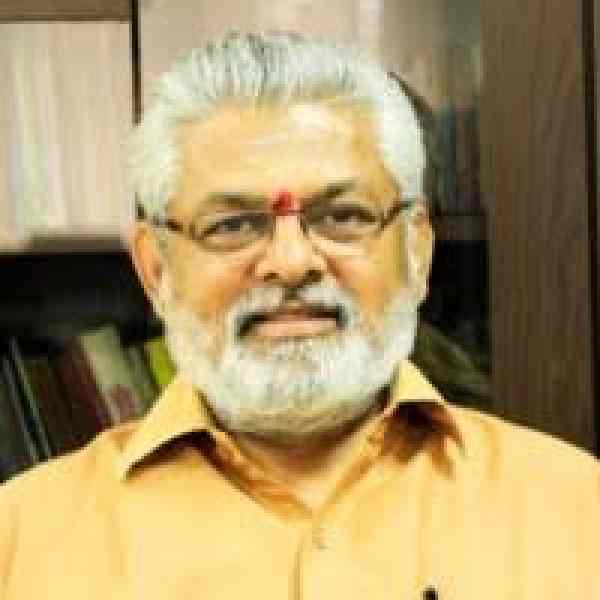Introduction
Dr. Gangadharan, a practitioner of traditional medicine, is training health workers and doctors in Community Health Centers and Primary Health Centers in Southern Indian states to promote traditional health practices for preventive and curative primary health care.
The New Idea
Dr. Gangadharan is working to integrate traditional health systems into the established primary health care centers (PHC) in India. He is combining non-Ayurvedic holistic health practices - those that are less documented and less institutionalized and the more well known Ayurvedic health practices into the new system. This intervention also is breaking new ground due to its emphasis on preventive care through his training of individuals to cultivate and regularly consume herbal medicinal plants.
His approach is low cost and local specific. In the Indian rural situation this is a very significant move. Gangadharan's strategy is intrinsically geared to make users self reliant by training them to identify and grow the plants and process them to get medicines. He does this through training exercises and the distribution of educational materials. He has already established a resource-cum-training center to provide training / follow up.
Note: Ayurveda is the oldest and the most predominant local health tradition in India.
The Problem
The most striking observation about the health care system in India is the monoculture of Western medicine. Statistically, 97% of the total health care budget is spent on the Western medicine and the remaining is shared between all the other systems combined. Also, the budget allocation for primary health care is woefully inadequate. Ironically such a system reaches only about 20% of the total population. These medicines are expensive now and their cost is likely to increase dramatically beyond the year 2005 primarily due to the implications of intellectual property rights related procedures. Although many people promote traditional health systems, little has been done in India to integrate it into the primary health care system. Although professional courses in Ayurveda are available in the country, no short term orientation / training is available at the community health worker level.
Most Ayurvedic doctors cater to the rich and elite. This situation results from the fact that the poor generally access health care from a government health facility because it is inexpensive or even free. Most private medical establishments are expensive whether Western or Indian. These private establishments sometimes offer traditional health care, but due to the cost, it is inaccessible to the poorer residents. Therefore, time tested, locally available medicines are not available to the poor people especially for primary health care.
A large number of NGOs working on health issues are interested in this approach but there is a dearth of individuals / groups to help them with information, literature, training, follow up. Similarly, government departments have indicated a willingness to consider a shift in their policy on primary health care but no successful alternatives have been demonstrated in the field.
The Strategy
Gangadharan has plans to trial his concept in five Primary Health Centers in each of the southern Indian states: Kerala, Tamil Nadu and Karnataka. These initiatives will have policy implications once the efficacy of his approach can be scientifically demonstrated in the field.
Each government run PHC benefits a cluster of villages. An individual center usually has at least one doctor and a nurse, perhaps more. There are also some beds for in-patient care. Most of the treatment is free (or supposed to be). PHCs also coordinate and facilitate activities such as Polio vaccinations, birth control programs, malaria programs, etc. These centers, spread across the country, face the same problems that are typical of any large scale government intervention i.e. inefficiency, corruption, and lack of motivation.
Dr. Gangadharan has established a center for Indian Medical Heritage near Coimbatore in Tamil Nadu . It is a resource, documentation and training center and will be the cornerstone of all his activities. This center consists of a medicinal plants park, library, small processing unit, health center, and demonstration herbal kitchen garden. From this center, Dr, Gangardharan will run seven day training packages for doctors in PHCs, community health workers from other NGOs, housewives, and traditional doctors in government hospitals.
The center is now developing a 12 week elaborate training program for existing practitioners of traditional medicine which will focus on training them in primary health care, an area that is often neglected by the existing traditional doctors.
After more than a decade of experience in networking and catalyzing health NGOs in India through Lok Swasthya Parampara Seva Samiti (LSPSS), Gangadharan is in a unique and strong position to advocate his strategies, share experiences and knowledge, etc.
The Person
Gangadharan was born in Kerala, and his upbringing was marked by the inculcation of the traditional values and practices of his mother and the modern outlook of his father. One of his brothers is a traditional ophthalmologist and an Ashoka Fellow. Gangadharan is a certified doctor and has an excellent track record of building and managing NGO networks in his field. Since 1985, he has been the Secretary of LSPSS, through which he has built a network of over 150 organizations and many more individuals who are interested in alternative health practices. Today it is a well trusted and run All India Organization which coordinates efforts to promote alternative health practices. However, LSPSS does not run its own projects. It coordinates the
efforts of NGOs and government agencies. He is also a member of WaH! - the country's major program on women's health initiated through an NGO network.
His wife who is also an Ayurvedic doctor has always supported him in his work. Gangadharan has three children.
